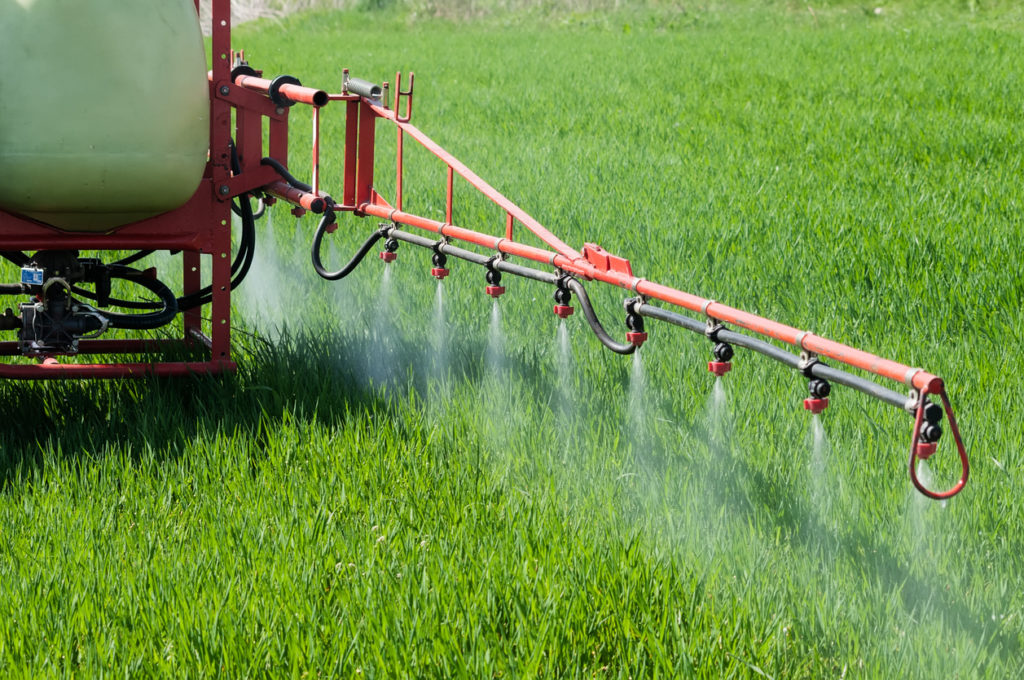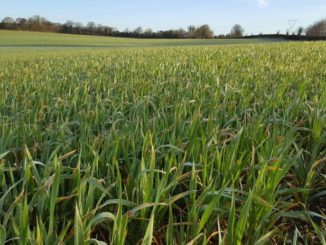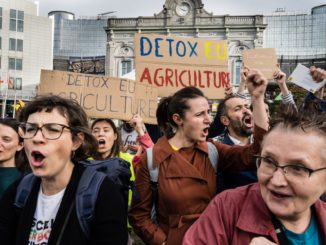
The European Commission has proposed to renew the authorisation of the controversial herbicide glyphosate for a further 10 years meaning that, if member states give their go-ahead, its use in the EU will be allowed until 2033. Natasha Foote reports
The draft regulation, which was presented to member states on Wednesday (20 September), states that it is “appropriate to provide for a renewal of the approval of glyphosate for a period of ten years” beyond its current expiry date of 15 December.
The proposal comes on the back of months of heated debate over the impact of Europe’s most widely used herbicide on health and the environment, particularly over whether glyphosate can be considered carcinogenic – i.e. a driver of cancer in humans.
Read the draft on the Commission’s Comitology Register or download the draft and annexes below
Draft Glyphosate Regulation Renewal
Annexes Glyphosate Renewal Regulation
The herbicide’s approval in the EU originally expired back in mid-December 2022, but was temporarily extended for one year while awaiting further information from the EU’s food safety agency EFSA.
The decision follows the publication of EFSA’s long-awaited conclusions on the risk posed by the divisive herbicide back in July, in which it concluded there were ‘no critical areas of concern’, although data gaps were identified on certain aspects. While a senior Commission official acknowledged that “some data gaps and issues are not fully finalised,” he noted that this “is the case in practically all of EFSA’s conclusions on all substances.”
As such, the official maintained that the EU executive considers a 10 year re-approval period to be a “good balance” between the current knowledge about glyphosate and new insights that may arise.
“We have now done two full assessments of glyphosate, in a very short period of time, that came to more or less the same results. But, on the other hand, there’s also continued publication of studies around glyphosate. So we propose balancing these two elements to renew the approval for 10 years, ” the senior official said.
If within those 10 years new information comes to light which puts this decision into question, the EU executive is able to “review the approval at any point in time,” the official explained.
He also added that member states are theoretically free to refuse authorisation for all products containing glyphosate, provided that they provide adequate justification for the decision.
However, the Commission’s proposal comes with some caveats. For example, the proposal does not allow ‘pre-harvest desiccation’, which is when herbicides are applied to crops before harvest to kill the leaves and/or plants so that the crop dries out more quickly and evenly.
It also imposes certain limitations on its use, such as the number of times glyphosate can be used in a field, the maximum dose that can be applied at a given time, and on the timing of use, as well as recommendations for limiting the impact of spray drift.
Reactions
The news has been welcomed by the glyphosate renewal group, a conglomerate of agrochemical companies lobbying for the renewal of the herbicide, who said in a statement that the renewal will “strengthen consumer and civil society’s confidence in the EU system for regulating pesticide-active substances, which is one of the most stringent in the world”.
But for campaign group Pesticide Action Network Europe (PAN), the decision flies in the face of the will of the Europeans. Five years ago, 1 million citizens formally asked for a ban, while a recent IPSOS opinion poll across 6 EU countries found that only 14% of citizens agree with glyphosate’s prolonged use.
“The regulators are moving full speed without listening to citizens’ concerns and independent science. Industry interests clearly prevail over health and the environment,” Angeliki Lysimachou, head of science and policy at PAN Europe, said.
Meanwhile, Green MEP Jutta Paulus lambasted the Commission for “put[ting] corporate interests above the well-being of millions of Europeans”. “The Commission’s proposal to extend the use of glyphosate is an attack on the law to save nature,” she said.
Next steps?
The proposal must now win a qualified majority from member states to pass, with discussions between EU government officials set to take place this Friday (22 September), followed by a vote on 12 October.
Asked about the initial reactions from member states to the proposal, the Commission senior official said that, as things currently stand, only one member state has expressed they would not support a renewal. “But most of those who responded supported [it], and some did not express an opinion at all,” he said.
While it is unclear at this point how the vote will go, Germany has been vocal in its anti-glyphosate stance. Meanwhile, back in 2022, a coalition of several member states comprising Luxembourg, Malta, and Croatia blocked glyphosate’s temporary extension of the EU approval, while France, Germany, and Slovenia chose to abstain from the vote.
In the event that the case is not closed before the expiry date, the Commission will extend the current approval for another period, the official added.
More
The True Toll of Pesticides on Rural Health – Pesticides Analysis Part 2
Beyond the Harvest: Health Effects of Pesticides on French Farmers
France | Pesticides, PDOs & Plenty of Spin at Salon de l’Agriculture 2023
EPP Attacks Pesticide Regulation & the Nature Restoration Law






1 Trackback / Pingback
Comments are closed.